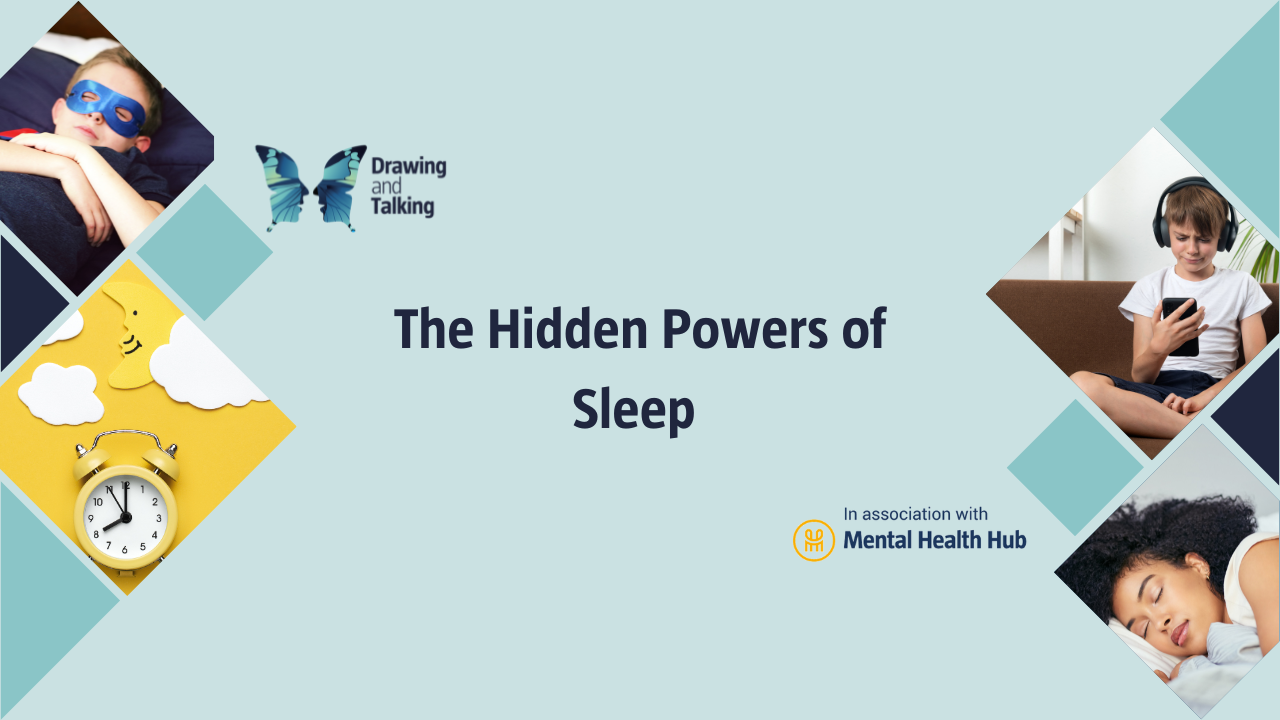
LIFELONG THERAPEUTIC LEARNING:
-
Learn more

Drawing and Talking allows individuals to discover and communicate emotions through a non-directed technique, setting it apart from existing solution-focused and cognitive-based therapies and interventions
Learn more
Creators of a global proactive intervention intended to complement rather than replace the work of Specialist Mental Health Services
Working with vulnerable
-
Full courses
Drawing and Talking has proved invaluable with secondary aged students who find it difficult to talk about their emotions.

Our team's commitment to high quality services provides you with peace of mind.
Individuals
Creators of global proactive intervention intended to complement rather than replace the work of Specialist Mental Health Services.
Organisations
In-house training days are the most cost effective way to train groups of 20 or more staff in the Drawing and Talking therapeutic technique. We offer both Zoom and in-person options.
-
Short courses
Drawing and Talking has proved invaluable with secondary aged students who find it difficult to talk about their emotions.

Drawing and Talking allows individuals to discover and communicate emotions through a non-directed technique, setting it apart from existing solution-focused and cognitive-based therapies and interventions
Short Courses
Our short courses provide 2.5 hours of CPD and can be completed by anyone - not just graduates.
-
Practitioners
In our 20-year history, we have built a community of 20,000 Drawing and Talking Practitioners.
Our Drawing and Talking Practitioners are committed to high-quality therapeutic support. Our Accredited Practitioners maintain an active Drawing and Talking Membership, which includes regular CPD and supervision and coaching. This ensures safe, reflective and effective practice.
- Contact us
- Book now
The Hidden Powers of Sleep

Sleep also plays a crucial role in our ability to both perceive and respond to other people's emotions accurately. When we are sleep-deprived, our ability to read and respond appropriately to emotional cues is diminished, leading to breakdowns in communication and feelings of social isolation. This is without considering possible further impacts on those who experience some kind of trauma, or who are neurodiverse.
One benefit of sleep that is often overlooked is its ability to aid in emotional healing. Dreams, which occur during the REM phase of sleep, can provide a safe space for emotional processing and integration. Dreams can also offer valuable insights into our emotional state and provide guidance for addressing our emotional needs. In Drawing and Talking training we teach you a little about dreams and archetypes from Jungian learnings.
Research has shown that dream processing can help individuals overcome emotional trauma and move towards recovery. Dreams can also help us to develop a more optimistic outlook on life and prepare us for future emotional challenges. Lucid dreaming, which allows individuals to have control over the content and direction of their dreams, has even been shown to improve emotional regulation and coping skills in waking life. Using the Drawing and Talking technique allows the client to feel safe and secure in the containment of the practitioner, to draw images, use structural dialogue and talking to gently process those feelings. This experience allows the client to know they can survive their emotional pain and gain emotional resilience over it.
In conclusion, prioritizing sleep is crucial for maintaining emotional resilience and overall well-being. Adequate sleep aids in stress regulation, emotional processing, and memory consolidation. Additionally, dreams offer a valuable tool for emotional healing and recovery, providing a safe space for emotional processing and integration, and valuable insights into our emotional experiences. So, make sure you set aside enough time to get adequate sleep and give yourself the gift of emotional healing through your dreams.
“In sleep, fantasy takes the form of dreams. But in waking life, too, we continue to dream beneath the threshold of consciousness, especially when under the influence of repressed or other unconscious complexes.”
The practice of psychotherapy (ed. Bollingen, 1966)
Latest news
June 26, 2023
June 26, 2023



